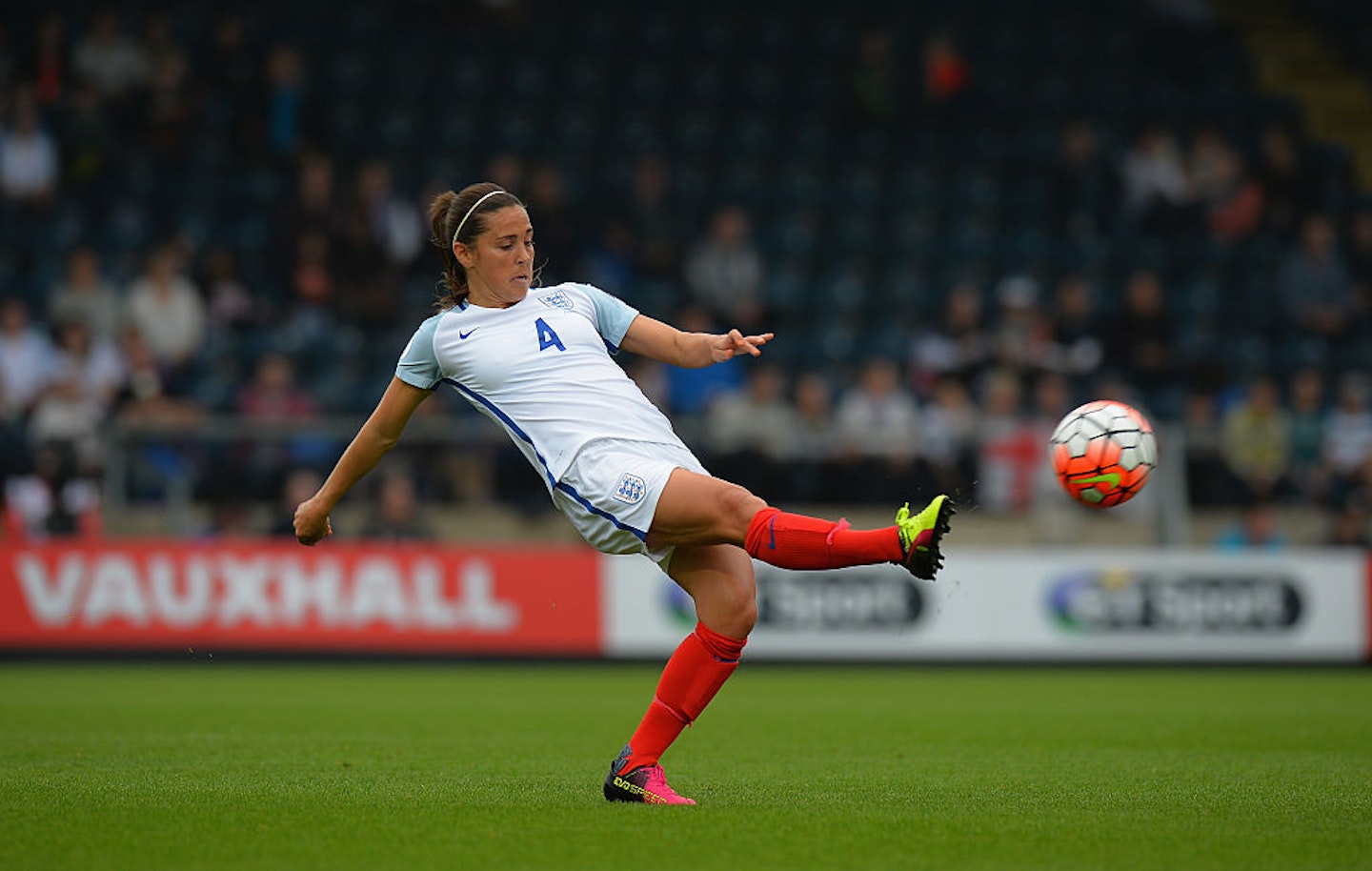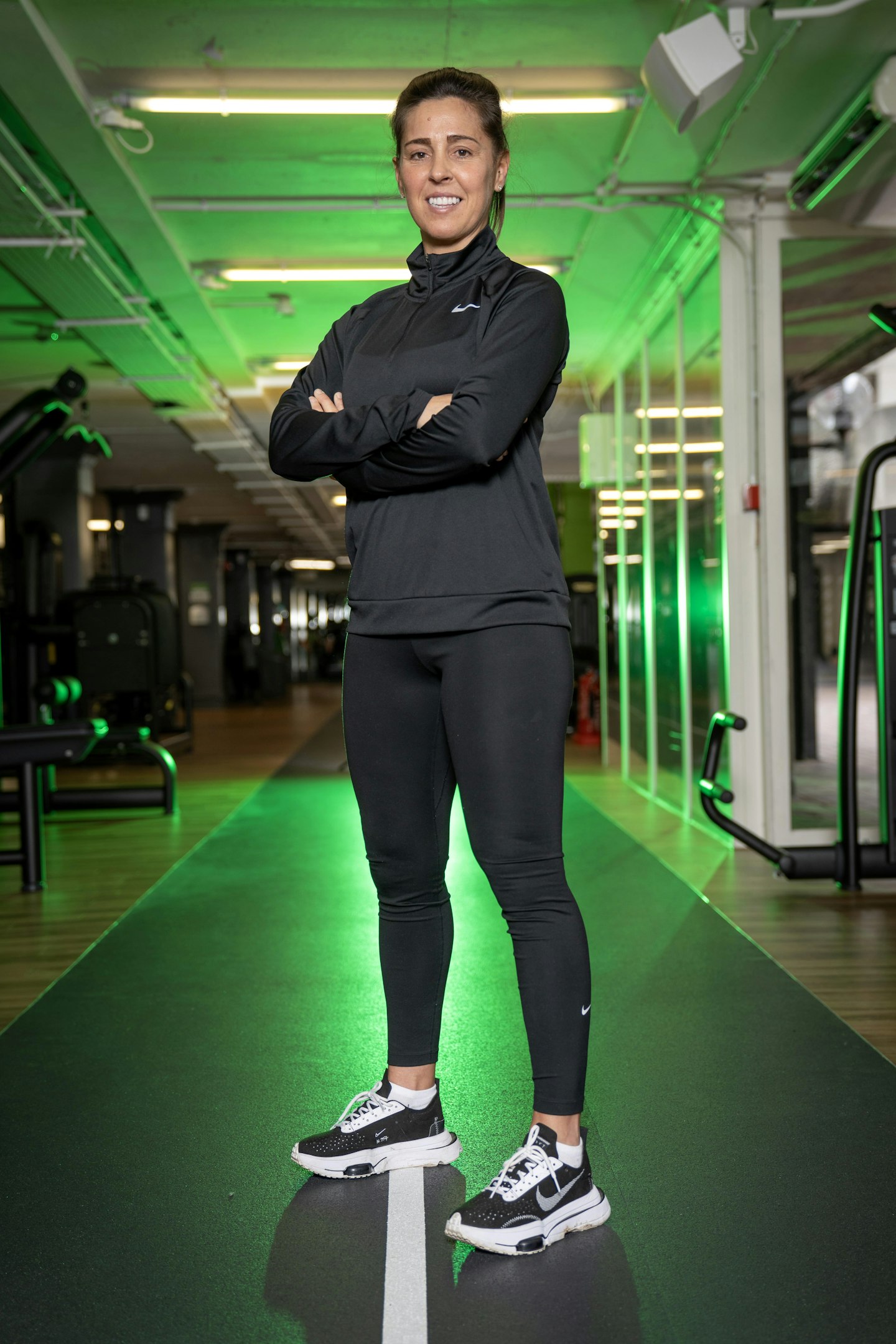Former Lioness Fara Wiliams has teamed up with Nuffield Health to break down the barriers stopping young girls from keeping active with a new campaign offering free, fun and inclusive exercise sessions for teenage girls across the summer. Fara was Chelsea first-teamer by just 17 years old and although now retired, is still passionate about inspiring other young girls to stay active.
In 2016, the WHO reported that 81% of young adolescents around the world aged 11-17 were considered physically inactive. Perhaps unsurprisingly, girls were far less active than boys across the board.
Nuffield Health's programme will offer sessions for girls aged 11-16 across the summer with parents also given a free day pass, helping to embed positive attitudes to movement.
Speaking to Grazia, Fara says, 'The campaign is trying to encourage young girls to reframe physical activity and sport into movement, and give them a more positive introduction into being healthier. The stat is that 57% of parents actually want to do exercise with their daughters. That tells us that there is a need and a want for this - and Move Together is helping to bridge that.'

'Certainly with mental health, we know it's been a huge thing since the pandemic,' Fara adds. 'Movement and exercise can have real, positive benefits. I know when I'm having a down day and I do some exercise, my thought process changes. Obviously there's long-term health benefits too. If you're making it part of your daily routine, then it's something you can take into your later years.'
The science is clear: movement does wonders for the body and mind. So, why are such low numbers of young girls partaking in sport?
For those parents who are less active growing up, almost half said it was because they weren't raised in a 'sporty family.' 34% said they didn't enjoy sport growing up, while 25% admitted they were never encouraged to take up an active lifestyle by their adult role models. Perhaps unintentionally then, the attitudes and behaviours we carry as adults are working their way into our children's lives.
For Move Together, breaking down these generational barriers won't simply happen by forcing children to step on a pitch. Instead, it begins with education.
'There's many things that are stopping young women from feeling able to partake in sport,' explains Fara. 'I think your first experience into something plays a huge part in whether you continue to do that. If it's a negative first experience, then it's going to affect you in terms of wanting to do that again.'
And for young people, physical education in school has a lot to answer for. In 2023, a Youth Sport Trust survey saw that, while an impressive 84% of secondary school boys said they 'like' PE or 'like it a lot', only 59% of girls answered the same.
'I've always thought sport in school is difficult because it's been made competitive. You have to be the star of the class in order to feel like you're valued. If you're not that kind of nature, then it's already a barrier,' says Fara. 'I also think as females, we experience different things than men. Periods can be a huge factor in why girls don't feel comfortable, both talking about it and exercising when it's that time of the month. As you get older, you become very conscious of things. I remember in school if you got hot and sweaty in PE, you weren't always able to shower after. There's some barriers around that: you can get bullied for smelling, being dirty, wearing the same clothes. I think the curriculum can certainly do more in order to help make that first experience of movement more positive.'
'If even a small percentage make a change to their lifestyles, then that's a huge impact'
With Move Together, Fara says girls across Britain will have a chance to see movement in a new light. 'This is not about being competitive with anyone other than yourself. I think the fact we're investing time and money into giving opportunities is incredible, because it's all about the opportunities. Hopefully young girls can take some of these movements that they learn in the classes to the park with their mates. If we get even a small percentage changing their lifestyle, then that's a huge impact.'
While there's still plenty to do, it's undeniable that attitudes are changing. In the past few years, the spotlight has been on women in sport - including the likes of The Lionesses and Emma Raducanu.

'Whether you're reading newspapers or going online, you're seeing that women do participate in sport,' says Fara, recalling how she was 'probably the only girl playing football' growing up. 'For young girls, it's not seen as something negative. People are more aware of grassroots opportunities and clubs. When I was younger, those opportunities were few and far between.'
But while there's plenty more opportunities, Fara says it's imperative the UK continues creating places for young girls - and indeed, young boys - to invest in their health. 'Do you know what? I think it's better that these campaigns exist now, because I think society has changed,' Fara explains.
'As a kid, I grew up on an estate and we were always active. I was lucky that my mum would kick us out the house and get us playing. I know some parents don't feel it's safe for their kids to do that anymore. I had youth clubs and all these opportunities to be active without even knowing I was exercising, but all of those are shut down now. Instead, kids are locked in their houses, on phones or computers. The fact that this campaign allows children to come together in a safe place is important - for parents and for children.'
Move Together is running across 112 locations across the UK, with all sessions are run by Nuffield Health’s team of qualified trainers. Adults of girls booked on to a session can also claim a free day pass, helping them to demonstrate how important it is to incorporate physical activity into our lives.
For more information or to find a free Move Together class near you, visit: http://www.nuffieldhealth.com/movetogether
